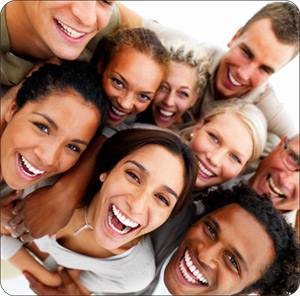There are many exposures to discrimination, either at a store where someone will give another a discount but not you. Something as simple as that, and that person will deny it when confronted. What can you do? Do you just get used to it and you don’t realize it anymore? Are we just second-rate citizens? I remember a couple of years ago, I was looking for a house to rent to move closer to my job. I found just the right house. When I finally got ahold of the person in charge, I made an appt. with her and when I told her I wanted the house she gave me a form to fill it out. On it, she wanted to know my race. When I ask her why she gave some story about it was for insurance purposes.
I remember a couple of years ago, I was looking for a house to rent to move closer to my job. I found just the right house. When I finally got ahold of the person in charge, I made an appt. with her and when I told her I wanted the house she gave me a form to fill it out. On it, she wanted to know my race. When I ask her why she gave some story about it was for insurance purposes.
I refuse to write it down. I let her know that I worked at a job, where she did not have to worry about me paying the rent. She did not ask for a credit check. Do you know you have this inside feeling that she did not want to rent to you? She did not have a reason not to rent her house to me. I had excellent credit. Not good, not ok, it was excellent.
This was an older white lady, in my experience, older white people have a set mind about other races, if they are not white or born in the United States.
But I even showed her my birth certificate, that’s how bad I wanted that house. It was perfect for me. How sad, she said right to my face she said: “I do not want to rent to you.” No reason or explanation.
My skin is brown and I am Mexican American born here in this Great Country of the United States of America. As a person of Mexican ethnic race, I have always feared if I am stopped by a police officer, will I be labeled as an undocumented immigrant.
When I hear about the children in cages, It is very traumatizing when we hear how many Latino children are dying in those cages. Likewise, when we see a video about an unarmed black person being killed by police, we get re-traumatized.
I have everyone in my prayers. This can cause a person to think about and re-live a trauma, flashbacks, or even nightmares.
I am always worried about my son more these days, because he is half black, but looks black and half Mexican and enjoys been black as well. I told him when he was little he could be any race he wanted to be. After all, we are in the land of the brave and the land of the free.
Discriminations can cause intense anxiety, depression, and other negative effects on an individual’s life in many ways. Unlike other traumas, racial discrimination is an everyday occurrence.
This means this is a chronic trauma and aggression sickness that faces all of us in the communities, making it hard to recover from.
Can you believe that the American Psychological Association, believes that those in the Mental Health field and others do not diagnose symptoms of racial trauma? They probably connected it to other types of traumas that are suffered in childhood. They do not know how to assess for race-related trauma symptoms.
Even the DSM-5 blue book, (The Diagnostic and thee Statistical Manuel of Mental Disorders) limits the traumatic events and calls them closer to the PTSD (Post Traumatic Stress Disorder) diagnoses. They make a claim that it has most of the symptoms based on traumatic experienced events.
Some of the people of other races or color may have trouble finding clinicians of the same culture or their same race with whom people feel they could identify and could treat their symptoms appropriately.
The causes of racial trauma are everyday trauma and it is not a one-time event. That is why we as individuals, need to learn to manage our trauma and will have to adopt new strategies to find support for racial discrimination. These could be;
- Avoid (if possible) people who don’t feel discrimination is not as serious that people make it out to be.
- Look for support groups or communities that understand racial discrimination or traumas.
- Limiting or staying away from some T.V. news or avoiding images of racial abuse.
- Most importantly, take part in activism against racial injustice.
- Get support from others who have also experienced Trauma racial trauma by using and
- identifying healthy coping skills.
- Remember violence and substance abuse is not the answer.
- Find trauma-informed care programs to help you identify healthy coping skills.
When a person feels empowered, they are less likely to accept bad behaviors from themselves or others. Love and peace start here with us and in our hearts.
Our purpose should be that of making this world a safe and loving environment for our children and all those we love. I wish we could all just love one another just because we are all human.
May God give strength to those who have the courage to want to make a change. Many Blessings.